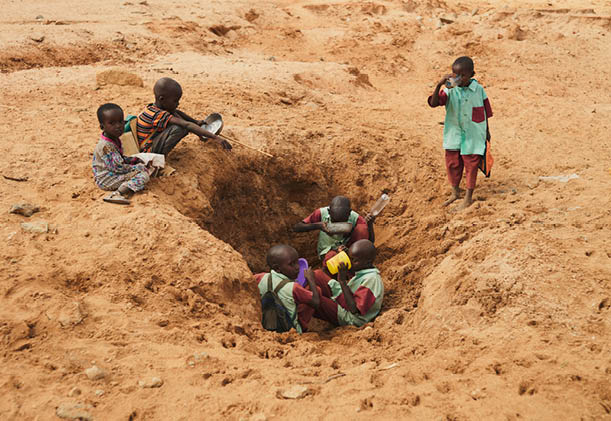Action Against Hunger an NGO leader in the global movement to end hunger, has issued a statement expressing extreme concern about severe and persistent drought across the Horn of Africa. Access to food in the region has dropped and is expected to continue to decline as communities head into what is predicted to be the fourth consecutive season without adequate rainfall. As a result, at least 13 million people across Ethiopia, Kenya, and Somalia face severe food insecurity, an increase of five million people since November 2021.
“The needs right now are higher than we have experienced in generations, and the situation is growing dire. Parents are desperate to find basic foods in largely empty markets. In one of our health facilities in Baidoa, Somalia, we are now admitting more than ten malnourished children every single day.”
“Some of our nutrition stabilisation centres are seeing a threefold increase in the number of children admitted with the most severe form of malnutrition compared to a few months ago. Our teams are working to help families cope with the climate crisis with nutrition treatment, cash assistance, and water access programmes, but with aid currently 98% underfunded, our work is just the start,” said Ahmed Khalif, Action Against Hunger’s Country Director in Somalia. “Drought could force more than 1.4 million Somalis to leave their homes in search of water and food, which already is leading to conflict over what few resources are left”
Ethiopia is seeing the lowest levels of rainfall in more than 40 years, and water levels in key rivers are dipping alarmingly low. “While international donors are focused on conflict in the north, there is a vast need for nutrition and health aid across the country,” said Maalim. “In 2015, Ethiopia faced the worst drought we had seen in decades; today, the need is already 40% higher than anything we saw then. Millions of livestock have died because of the drought and the number of people affected by malnutrition in Ethiopia has already doubled since the dry season last year.”
Throughout the region, food, water, and hygiene resources grow scarcer by the day. In Kenya, upwards of four million people will need assistance because of drought and 600,000 children younger than age five are already suffering from acute malnutrition. It is estimated that one million head of livestock have already died.
“As need escalates, violence is increasing as people find themselves in conflict over limited food and water,” said Jemimah Khamadi, Action Against Hunger’s Acting Country Director for Kenya. “We are working to implement plans for sustainable water management, but that requires additional resources.”
Leading humanitarian organisations are calling for $4.4 billion to save lives, reduce conflict, and prevent hunger from worsening. Action Against Hunger urges donors to act before more lives are lost.
“Food crises around the globe have taught us that early action saves lives and money. Right now, we need a collective ‘no regrets’ approach to funding and programming to avert a worst-case scenario,” said Maalim. “The stakes are unprecedented. If something does not change, famine will be on the horizon. Now is the time for donors to stand up before it’s too late.”
Action Against Hunger is a nonprofit leading a global movement to end hunger in our lifetimes. It innovates solutions, advocates for change, and reaches 25 million people every year with proven hunger prevention and treatment programs. As a nonprofit that works across 46 countries, its 8,300 dedicated staff members partner with communities to address the root causes of hunger, including climate change, conflict, inequity, and emergencies. It strives to create a world free from hunger, for everyone, for good.


